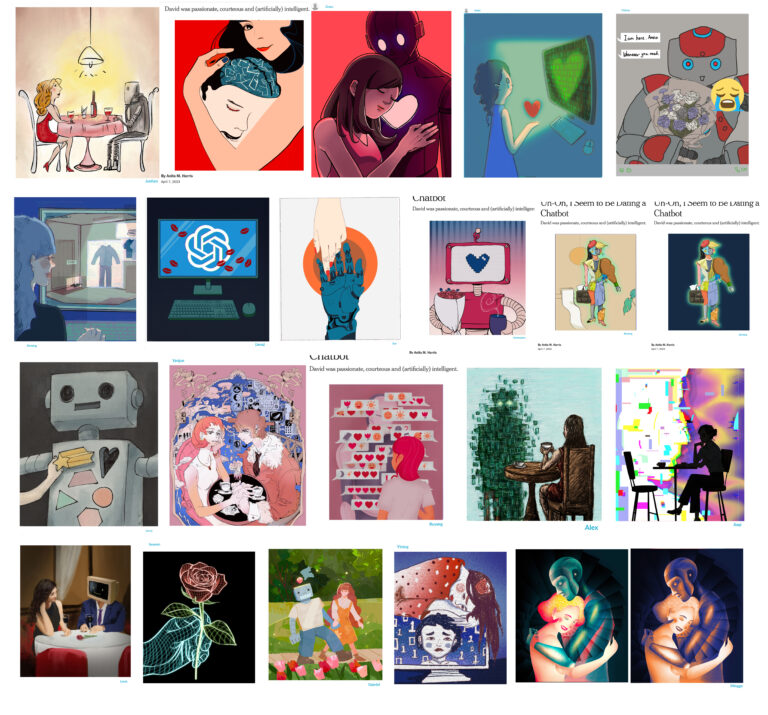Report on the Nieman Foundation’s 70th Anniversary Convocation, held
November 7-, 2008, in Cambridge, MA
In early November, I attended the Nieman Foundation’s 70th anniversary Convocation, which was entitled “True Grit, Advancing Journalism’s Covenant in the 21st Century”. The morning program, moderated by former Nieman Curator Bill Kovach, featured talks by former Nieman Fellows on “Preserving Nieman Values Through the Years.”
The afternoon program included a keynote by Len Downie, former executive editor of The Washington Post, who spoke on “The Moral and Ethical Obligations of Journalism in a Digital World,” and a panel entitled “Voices from the New World of Journalism”, which was moderated by Geneva Overholser, NF ’86, director of the School of Journalism at USC’s Annenberg School of Communications at the University of Southern California.
The evening program included a talk by Ellen Fitzpatrick, professor of American Intellectual and Political History at the Univrsity of New Hampshire, and a panel discussion on Press and Politics in the New Administration, moderated by Tom Ashbrook, Host of NPR/s On Point.
Here’s the url to a microsite where more information and videos are posted, followed by my 2 cents worth on the event (well, maybe more, but given the state of journalism, these days, I’ll take what I can get).
Convocation Microsite:
http://www.nieman.harvard.edu/Microsites/70thAnniversaryConvocationWeekend/Home.aspx
Video URLS:
Len Downie: http://www.niemanlab.org/2008/11/len-downie-online-standards-should-match-print-standards/
Charlie Sennott: http://www.niemanlab.org/2008/12/charlie-sennott-on-the-state-of-international-reprorting/
Michael Skoler: http://www.niemanlab.org/2008/12/michael-skoler-on-newsroom-culture/
My 2 cents
The overall meeting was both a discussion and demonstration of the state of journalism–much of it focused on traditional versus new media standards and practices, and the problem of finances.
The most dramatic moments came during an afternoon panel when Josh Benton, Director of the Nieman Journalism Lab, told the crowd that newspapers aren’t doing enough to empower their readers and that “You have to love your readers.” Someone from the audience responded, “But they say such mean things to us!” Then, a Washington Post reporter stood up. She seemed near tears when she said, “I already work 12 hours a day. Now I have to do blogs, spend hours answering emails, learn to use a video camera. Then the ombudsman is mad because I haven’t given the readers what they want for the next day’s newspaper.”
Other highlights included:
- An exchange at a Friday evening cocktail party between Margot Adler and Len Downie, who had recently stepped down as executive editor of the Washington Post and voted for the first time ever in the 2008 presidential election. As editor, Downie had declined to vote for fear of biasing–or appearing to bias–the Post’s coverage. Margot held that everyone is biased in one way or another and that being aware of your biases makes you bend over backward to be fair. (Having seen too much of Lou Dobbs on CNN, recently, I’m not sure that Margot’s theory applies across the board).
- Downie’s Saturday afternoon keynote, in which he described the current state of journalism as a “Darwinian struggle” that some news organizations will not survive. He was sanguine about the future of online journalism–if someone can figure out a way to pay for it. He suggested that nonprofit philanthropy might play an increased role….although that could lead to coverage of certain causes and fields, at the expense of others. He recommended instituting a blogger’s code of ethics to help promote high-level journalistic standards—and, that, at the very least, bloggers identify themselves.
- Former Boston Globe reporter Charlie Sennott’s description of the new “Globalpost.com– an online Web site with content provided by freelancers living all over the world who will receive regular stipends and shares in the company. The site, which he founded with New England Cable News Network founder Phil Balboni, was expected to launch in early 2009.
- The chagrin expressed by Nieman Reports editor Melissa Ludke regarding sites sponsored by news organizations that take no responsibility for the content. As editor, she seemed mystified at being challenged by a journalist-turned-blogger who pulled his story rather than accept her edits—then wrote about the experience on his blog, where he referred to establishment journalists as “thumbsuckers”. (I thought that was funny but I’m not sure that she did).
Clearly, journalism is undergoing a seismic shift. As Ellen Goodman put it “The only thing that hasn’t changed is the time it takes to really understand an issue.”
At the meeting, I was saddened by the dissension and disillusion of journalists caught in what Margot called “a dying industry.” But I also felt slightly elated. Having started my journalistic career by founding an alternative newspaper because establishment media wouldn’t hire many women and didn’t give voice to racial minorities or the poor, I’m excited by the increasing democratization of the marketplace of ideas.
True, I am concerned about the lack of standards on the Web and don’t put much stock in the so-called “wisdom of crowds.” But business, government, the arts, the sciences and the public need reliable information on which to base decisions. I predict a consolidation–in which national multimedia news organizations will each amass many local outlets—as do the TV networks today—funded by local advertisers or consumers’ online purchases of goods and services unrelated (I hope!) to the editorial content at hand.



